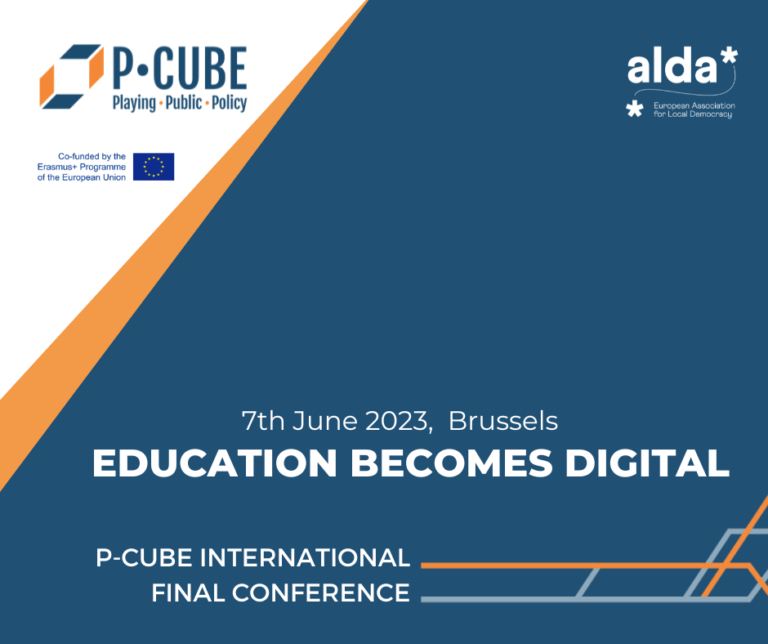4.30 pm
International Conference on Public Policy (ICPP5)
https://www.ippapublicpolicy.org/conference/icpp5-barcelona-2021/schedule-multisession/13/113
The panel “ACTIVE LEARNING IN POLICY STUDIES IN PANDEMIC TIMES: THE PROMISE OF DIGITAL GAMES” is part of the Biennial Conference of the International Public Policy Association.
The panel focuses on active learning (i.e. digital games) in policy studies.
Active learning techniques in teaching political sciences are popular in academic courses and training sessions. These techniques come in various forms such as role playing, simulations, and stochastic games. Several institutions boast specialized centres devoted to creating educational games in this field (e.g. TUDelft Gamelab or PAXsims at McGill, and the recently created Gaming Lab at the Center for a New American Security). There are also websites and international networks like Active Learning in Political Science or Eurosis.
This trend has obviously affected also public policy studies. A review by Igor S. Mayer (The Gaming of Policy and the Politics of Gaming: A Review, Simulation & Gaming 2009, 40(6) 825–862) has emphasized how “Gaming makes it possible to address the technical-physical-economic complexity aspect—that is, the substantive complexity of the problem that can be modeled either through formal or more conceptual methods—as well as the multi-actor aspect of policy problems”.
The COVID 19 pandemic, and the shift to online teaching that we are all experiencing, raises questions about the rapid and effective development of new digital games that can assist the instructors to overcome the obstacles that the restrictions to on-campus teaching pose to active learning.
The general objective of this panel is to discuss new projects, proposals, and experiences of educational digital games in the field of public policy.
The conveners are involved in an Erasmus+ strategic partnership – P-CUBE Playing Public Policy – that aims to teach the theory and practice of public policy making in different policy fields (urban innovation, social inclusion, science and evidence-informed policies, and European Union policies) through the creation of a digital game, a simplified version of which, developed in paper and cardboard, has been already tested in some university courses.
The basic assumption is that that policy making processes have structural identifiable properties across different policy fields, but the set of actors varies from one policy to the other.
Therefore, the goals of the game are twofold:
- to help learning how decisions on the public sphere are taken and which kind of decisional strategies the policy entrepreneurs can employ;
- to help familiarize the players/students/trainees with the specificities of the policy fields in which they are involved.
The first goal of the panel is to present to scholars of the policy process and policy sciences the beta version of the game. The aim is to collect criticisms, suggestions, proposals for extensions, and learn about the limitations and opportunities of our product.
The panel, however, also represents an opportunity to present other planned, ongoing, or recently piloted educational games in public policy studies not only related to agenda setting or policy decision-making, but also to policy implementation or policy evaluation.


